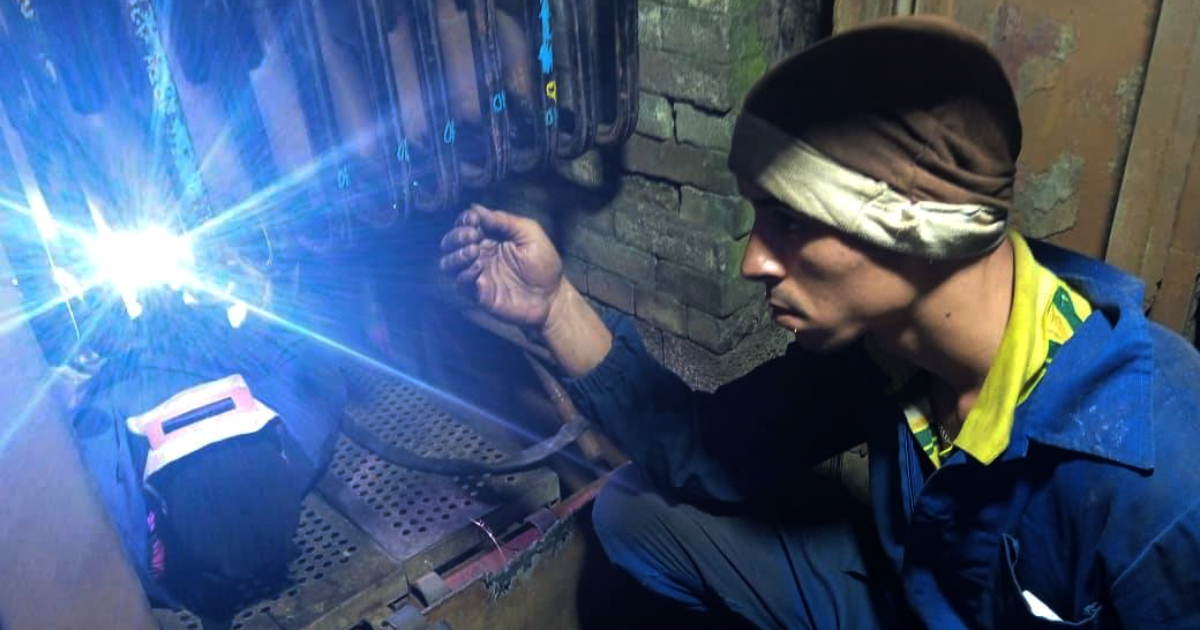Miguel Díaz-Canel, his ministers, government leaders, and the Unión Eléctrica de Cuba (UNE) had assured the public that power outages would decrease over the summer thanks to maintenance and repairs carried out on the country's thermoelectric plants in the months leading up to the season.
The strategy to reduce blackouts by servicing and preparing the thermoelectric plants for the peak summer months has proven to be ineffective. Cubans have endured prolonged and frequent outages, hoping for a cooler summer, but this hope has not materialized.
Since June 27, when the Antonio Guiteras thermoelectric plant went offline due to a boiler failure, causing a deficit of over 900 MW, the Cuban Electrical System (SEN) has been unable to generate and supply the electricity needed by UNE's paying customers.
According to the government-run media outlet Cubadebate, daily deficits since that date have reached: 1060 MW, 860 MW, 545 MW, 430 MW, 670 MW, 482 MW, 390 MW, 390 MW, 290 MW, 250 MW, 415 MW, 630 MW, 673 MW, 480 MW, 480 MW, 540 MW, 490 MW, 510 MW, 950 MW, and 830 MW. As of the time of writing, UNE has not yet released its forecast for this Sunday, so the expected deficit for the day remains unknown.
Unfulfilled Promises and Continued Outages
"We will have extended maintenance until June to minimize the inconvenience of blackouts in the summer, particularly in July and August," promised Díaz-Canel at the end of May.
Earlier that month, UNE posted on social media: "As has been reported from January to June, maintenance activities have increased at Thermoelectric Plants, Energás, and Distributed Generation with the aim of reaching the peak consumption and demand months of July and August, which are also the months of public holidays."
In late May, the Minister of Energy and Mines, Vicente de la O Levy, did not rule out the possibility of blackouts during the summer despite the maintenance work on the country's thermoelectric plants.
In statements to Cubadebate, De la O Levy stated that "all scheduled actions for the recovery of the national electrical system have been completed and the summer is expected to be faced in better conditions," although he did not dismiss potential problems.
"By the end of May, we predicted a significant reduction in outages and better conditions for the summer months," said the minister.
However, far from meeting the government's "continuity" forecasts, the lack of diesel fuel combined with a couple of "unexpected" breakdowns doubled the blackout projections for last Thursday, reaching 1,041 MW during peak hours.
To make matters worse, the blackout forecast did not improve on Friday, again surpassing 1,000 MW, as revealed by Lázaro Guerra Hernández, General Director of Electricity at the Ministry of Energy and Mines.
And what did UNE Director Alfredo López Valdés say at the end of May? "We are aware that we are causing significant blackouts, but there is a trend towards improvement," the director optimistically claimed.
He explained that no maintenance work had been planned for any thermoelectric plant in July, which did not mean that things would go smoothly. "We will have the usual system failures, we will have the usual system limitations."
That same optimism was echoed by Díaz-Canel, who assured that "in July and August, all stations will be operational unless they experience a breakdown."
However, López Valdés tempered his statements by saying, "We are not sitting idle; we are fighting, but we cannot commit to something that today... Can we guarantee no blackouts? No, we cannot commit to that."
Meanwhile, Díaz-Canel supported his expert by saying that zero blackouts under current conditions are very difficult. "There may be a blackout at a certain time, but we will work to ensure they are not prolonged."
As July comes to an end, the promises made by the leader appointed by General Raúl Castro and the face of "continuity" have once again fallen flat.
Cubans continue to endure blackouts with little protest, despite the predictions from the Ministry of the Interior (MININT) in mid-April, which blamed the United States for having a plan to incite public disorder on the island amidst the ongoing energy crisis.
Understanding Cuba's Power Crisis
Here are some frequently asked questions regarding the ongoing power outages in Cuba and the government's handling of the situation.
Why are there persistent blackouts in Cuba?
The main reasons for the ongoing blackouts include the failure of key thermoelectric plants, a lack of diesel fuel, and inadequate maintenance and repairs.
What measures has the Cuban government taken to address the power outages?
The government has implemented extensive maintenance and repair work on thermoelectric plants and has promised better conditions for the summer months. However, these measures have not been fully effective.
How have the Cuban people responded to the blackouts?
Despite the ongoing power outages, there has been little public protest. The government has claimed that the United States is attempting to incite public disorder amidst the energy crisis.
